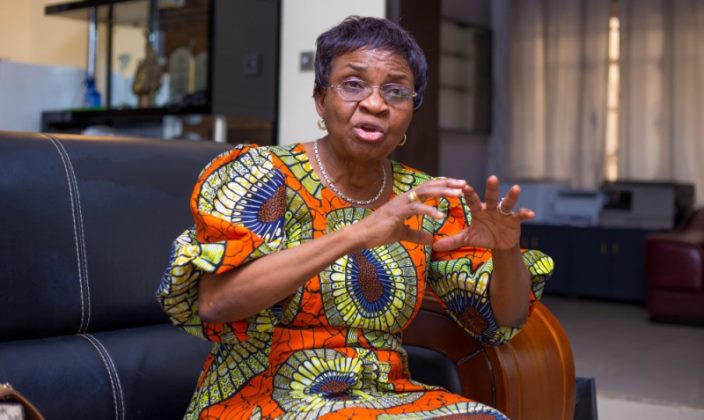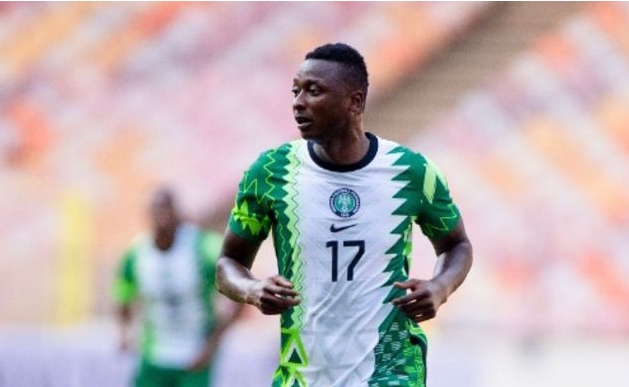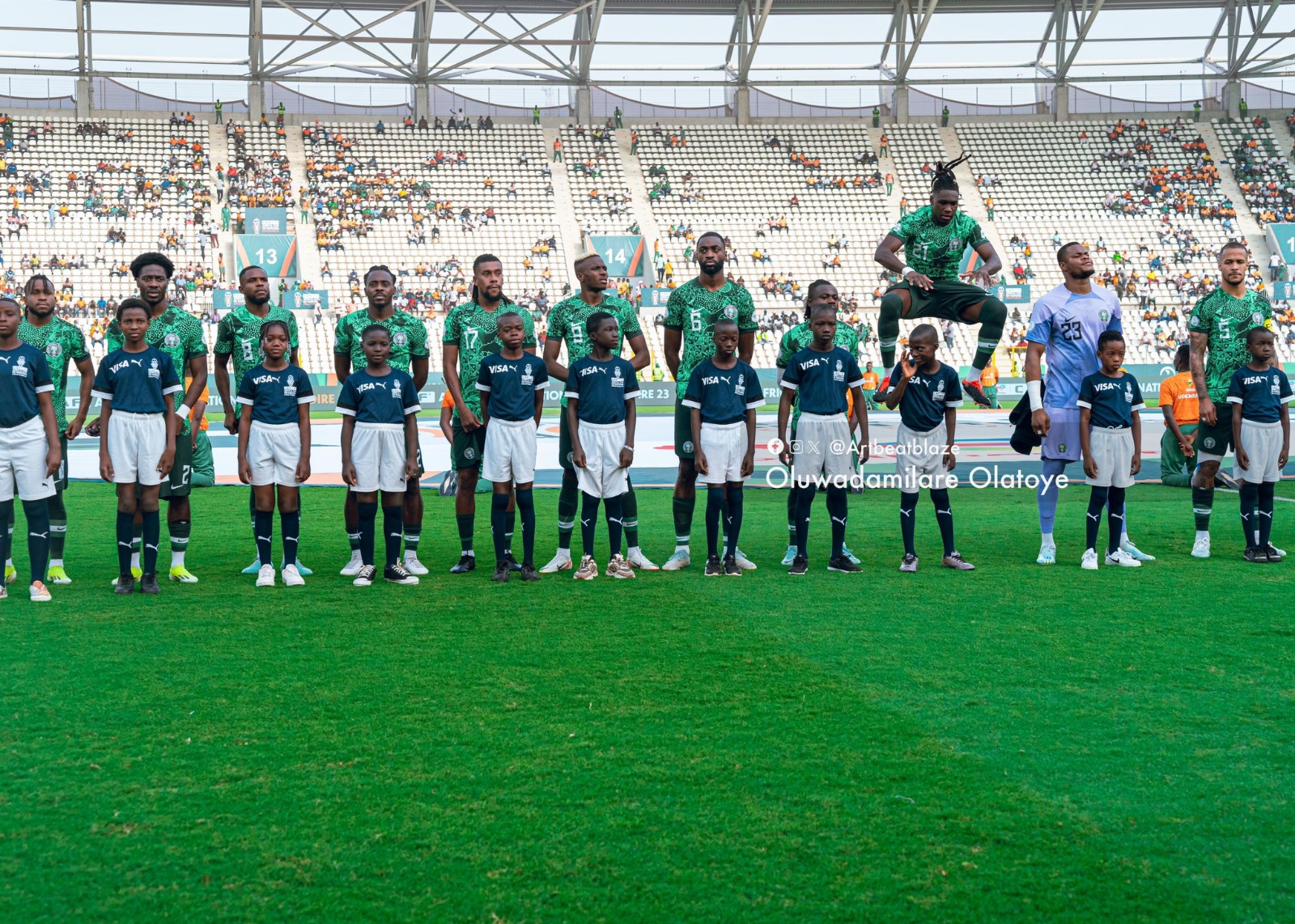Super Eagles celebrates a goal during the group stage | Photo: Oluwadamilare Olatoye
It was not by accident that the 22 Green Eagles players who prosecuted the first Africa Cup of Nations success for Nigeria in 1980 made the country proud. Safe for defender Godwin Odiye who was already plying his trade in the United States before the competition hosted by Nigeria, the rest of the squad was playing in the local league, with a preponderance called to the national team from dominant clubs like Enugu Rangers, IICC Shooting Stars and Bendel Insurance. Little wonder, the AFCON-winning team went all the way.
Subsequent Eagles’ teams to the AFCON finals in 1982 and 1984 were populated by players in the domestic league, a development that further popularised the teams as fans of the players in the league simply followed their idols to the Eagles. Nigeria did not qualify for the 1986 finals hosted by Egypt but by 1988 when the country returned to the edition hosted by Morocco, there had been a slight change in squad selection after several of the players had begun to ply their trade in Europe, by which time the team itself had been re-christened Super Eagles.
The 1990 edition in Algiers was however to prove a turning point for the players in the local league. A good number of the Europe-based players could not be secured for service while a few others attached too stringent conditions to their invitation, forcing an influx of local league players to the squad as a viable option. The fact that Nigeria survived a devastating start to the competition and still made it to the final before losing the trophy narrowly to the host country, even though under very hostile circumstances, boosted the profiles of the hurriedly invited local league players and had a positive impact on the league as well, driving home the point that players in the domestic league could hold their if given the chance.
Years after, especially after Nigeria’s second AFCON success in 1994, an unwritten policy by the Nigeria Football Federation (NFF) changed the course of players’ invitations to the Eagles as the focus shifted totally to players in the foreign leagues, with some of them even featuring in the lower and less competitive leagues. Sometimes, the invitations also totally ignored the technical and tactical relevance of the invitees to the team with regard to value addition. To be fair, though, the standard in the local league at the time had also ebbed so much that many of the players wanted out to even more substandard leagues, as long as the move guaranteed for them better remuneration, no thanks also to persistent maladministration of the league at home.
Advertisement
Yet another turnaround came for the Super Eagles after the late former captain, Stephen Keshi, an arrowhead of a generation of Nigeria league players that populated the Eagles in the 1980s, mounted the saddle as head coach in 2011 after Nigeria missed the AFCON 2012 finals ticket. It has to be said that it took the boldness and uncommon courage of Keshi to discard the aforementioned unwritten policy after he called in six players from the Nigeria Premier Football League (NPFL) to the squad he was building for the 2013 AFCON finals in South Africa. Reminiscent of the AFCON 1980 squad selection, three of the six players were from the Enugu Rangers. One of the trio, Sunday Mba, would go on to contribute ultimately to the Eagles’ success, scoring the only goal in the final with which Nigeria edged Burkina Faso to win its third continental title. Keshi had succeeded in bringing back competition for spots in the team towards ensuring formidability. It was a legacy to be cherished.
But after Keshi was eased out of the Eagles’ job in so unnecessarily acrimonious manner post-World Cup 2014 finals in Brazil, where led Nigeria to the Round of 16 and equalling the record set by Dutch Clemens Westerhof at the USA’94 finals, the unwritten policy against the local league players resurfaced in full force, literally making their invitation a taboo. Indeed, so many forces were unleashed on the NPFL to put a “substandard” stamp on the players. Ironically, the Eagles continued to recede, despite a total hope placed on the foreign legion. By an act of fate, however, the local league picked its pieces and soon began to embark on a consistent drive back to its old glory days – thanks largely to stakeholders who believed in the wisdom of “looking inward”, as epitomized by the incumbent NPFL management led by Hon. Gbenga Elegbeleye.
No other event has highlighted the “looking inward” reality more than the performance by the Super Eagles at the latest AFCON finals in Cote d’Ivoire where deficiencies were laid bare, emphasising an urgent need for the NFF’s Technical Department to open up the squad for sports competition. This is hardly debatable, especially in view of the competition that led to the supplanting of Eagles’ first-choice goalkeeper, Francis Uzoho, by the more competent and confident Stanley Nwabali – the result of which was too glaring to be ignored. Nwabali was Katsina United’s goalkeeper up till late 2022 when he left for the South African Premier Soccer League (PSL) to sign for Chippa United where he easily became the first choice.
Advertisement
To be sure, Hon. Elegbeleye and his lieutenants had persistently pushed for some of the NPFL players to be given a run-in in the Eagles pre-Cote d’Ivoire AFCON finals. Now, fate has made the run-in inevitable – if indeed the Eagles must be strong in all departments. It is no longer just a mere possibility but a matter of urgent national consideration as the AFCON 2025 and World Cup 2026 qualifiers loom.
Add a comment







